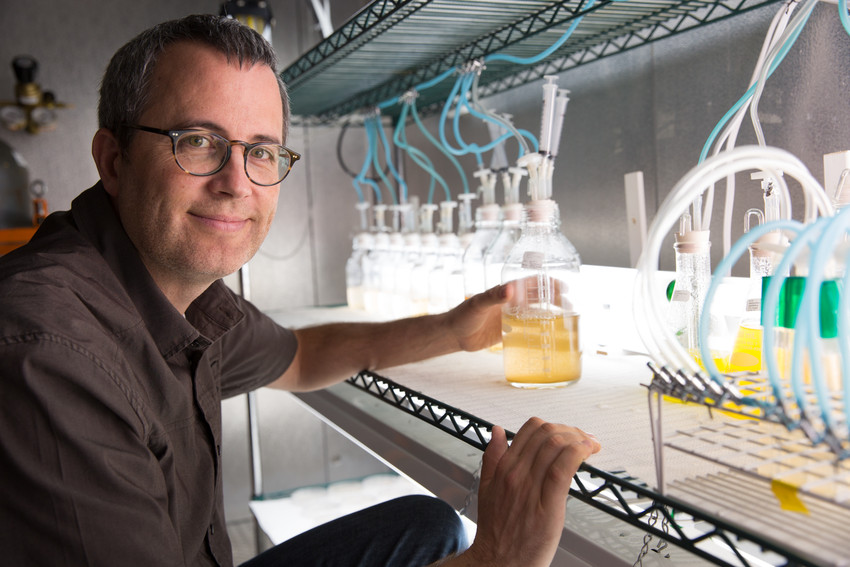FAYETTEVILLE, Ark. – The Simons Foundation has awarded $540,000 to University of Arkansas biologist Andrew Alverson to study the evolution of microscopic marine algae in the Baltic Sea.
Alverson is one of four researchers across the United States selected as a 2016 Simons Early Career Investigator in Marine Microbial Ecology and Evolution.
Alverson studies diatoms, one of the world’s most diverse groups of microalgae, also known as phytoplankton. Diatoms are single-celled algae that are found in oceans, lakes and rivers – practically anywhere there is sunlight and moisture. They are prolific photosynthesizers, producing one-fifth of the world’s oxygen, and are a key primary producer for ocean food webs.
For the Simons grant, Alverson will focus on a single diatom species – Skeletonema marinoi – which began life in the ocean and was carried inland when the Baltic Sea was formed following glacial erosion some 10,000 years ago. The sea is brackish, meaning it is saltier than fresh water but not as salty as seawater.
“The Baltic Sea is interesting because of its young age and intermediate, brackish habitat,”Alverson said. “Working with collaborators at the University of Gothenburg in Sweden, we'll determine how this diatom adapted to low salinity in such a short period of time.”
Evolutionary biology is a historical science but it provides a powerful means of looking forward as well including the adaptation of species to global climate change, Alverson said.
“Increased atmospheric carbon and global warming are having profound impacts on the world’s oceans,” he said. “Changing precipitation patterns and melting polar ice caps are freshening large regions of the ocean. Although these changes are predicted to have important impacts on the phytoplankton communities in these areas, relatively few data are available to predict how phytoplankton will respond to a rapidly changing ocean.”
Data from a close relative, Skeletonema potamos, which has independently adapted to freshwaters, will show whether there is more than one adaptive solution to managing salinity stress, Alverson said, providing general insights into the adaptive potential of phytoplankton to a rapidly changing ocean.
This project will be heavily computational, relying on resources available through the Arkansas High Performance Computing Center at the University of Arkansas.
Alverson is an assistant professor in the Department of Biological Sciences in the J. William Fulbright College of Arts and Sciences. His research is also currently funded by the National Science Foundation, Gordon and Betty Moore Foundation and Arkansas Biosciences Institute.
About the University of Arkansas: The University of Arkansas provides an internationally competitive education for undergraduate and graduate students in more than 200 academic programs. The university contributes new knowledge, economic development, basic and applied research, and creative activity while also providing service to academic and professional disciplines. The Carnegie Foundation classifies the University of Arkansas among only 2 percent of universities in America that have the highest level of research activity. U.S. News & World Report ranks the University of Arkansas among its top American public research universities. Founded in 1871, the University of Arkansas comprises 10 colleges and schools and maintains a low student-to-faculty ratio that promotes personal attention and close mentoring.
Contacts
Andrew Alverson, assistant professor, Department of Biological Sciences
J. William Fulbright College of Arts and Sciences
479-575-7975,
Chris Branam, research communications writer/editor
University Relations
479-575-4737,
